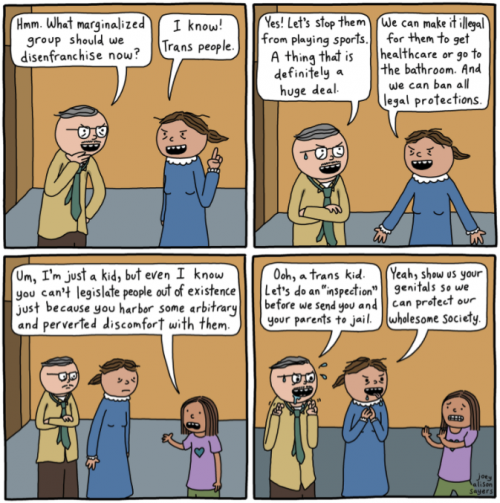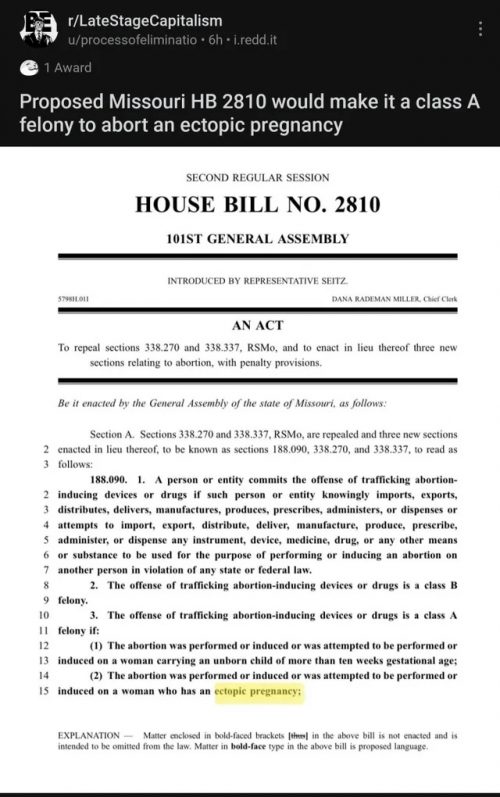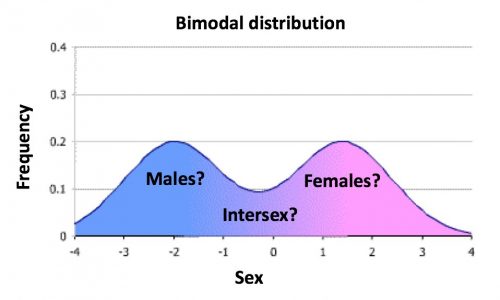This seems to be the question for April. Ketanji Brown Jackson was asked, and I don’t think she gave a good answer: she basically punted. She told Marsha Blackburn that she was unable to answer the question because she is “not a biologist.” The problem isn’t that she’s not a biologist, it’s that the question is so complex and involves so many interacting perspectives that it is silly to expect a one sentence answer. It’s not a true/false question. It demands a full thesis paper to even begin to touch the subject, and it’s going to involve biology, genetics, endocrinology, psychology, sociology, and history to give an adequate answer. Good biologists know that, too, and so please, don’t expect us to deliver a definitive, complete definition. It’s also not going to lead you to the simple binary that Blackburn wants.
Would you believe Answers in Genesis tried to answer the question? They’re stuck on the biology, too — and I tell you what, if you’re expecting a bunch of young earth creationists to give a reliable answer on a biology question, you’re boned.
The biological differences between men and women go far beyond the reproductive system and secondary sexual characteristics. Women’s bones are, on average, less dense than men’s. Women have less muscle and more fat on their frames. Research suggests that women have better language skills and men are better at some types of math, though some of this has been attributed to differences in brain function, learning styles, and perhaps cultural expectations. (And while this may be true on a population level, it says nothing about the relative abilities of any particular man or woman.) Women’s biology is so different from men’s that doctors are now realizing they have distinctive heart attack symptoms and sometimes have different reactions to medication. Women’s lifespans are, on average, a few years longer than men’s. That the sexes are different regarding their bodies, their interests, abilities, and even their medical needs should not be surprising, nor should it be a boasting point for those of either sex.
Statistical epiphenomena are not particularly useful mechanisms for identifying the differences. They are even vaguely aware of the problem, as you may notice with that parenthetical comment that it says nothing about the relative abilities of any particular man or woman
. Yes, there are differences in the averages, but there is significant overlap, and they are shaped by cultural expectations
, as even AiG is able to notice. There are real biological differences, and the variants do tend to cluster into a bimodal distribution, but the properties of a population don’t necessarily apply to the individual. Many of those aren’t at all diagnostically useful — do we have to wait for someone to have a heart attack, die, and then use their symptoms and age at death to determine sex? Boy, those are going to be some depressing gender reveal parties.
Tellingly, they don’t answer the question, either. Their final definition relies on the pathetic trope of looking it up in a dictionary, and saying that everyone just knows what a woman is.
Merriam-Webster has, as of the date of writing, the primary definition of woman as “an adult female person.” The Oxford English Dictionary has the definition as “an adult female human being,” as does the Cambridge Dictionary. Every English dictionary has had a similar definition of the word woman, and up until very recently, everyone everywhere understood that men and women are the two biological sexes that comprise humanity. From ancient times, it is simply assumed that a person is either a man or a woman.
Great. Define “adult”. Define “female”. Define “person”. Every word of that definition has been historically and culturally fluid. Can you at least learn to recognize that these properties that you think are so rigid and definitive are and have always been weebly wobbly culturally defined conventions rather than inviolable biological absolutes?
Oh well, I thought Answers in Genesis would be the absolute rock bottom of the well being dug to haul up buckets of stupidity, but there’s always someone willing to dive a little deeper for that delicious, precious inanity, and here comes Madison Cawthorn.
Rep. Madison Cawthorn (@RepCawthorn): "You might amend a bill, but you'll never amend biology. Science is not Burger King. You can't just have it your way…take notes Madame Speaker, I'm about to define what a woman is for you." pic.twitter.com/kPlUV2FALi
— CSPAN (@cspan) April 4, 2022
His definition:
XX chromosomes, no tallywacker.
There are people who identify as women who only have one X chromosome, and other people who identify as men who lack a “tallywacker”. This is a bad definition. It’s simple-minded and trivializing, exactly what you might expect from a Madison Cawthorn.
Let’s turn it around and ask a different question.
What then is a man?
I know. It’s just possession of a penis. Which means that a gigantic literary genre has been an epic waste of time. We can short circuit all the breast beating of Ernest Hemingway and Arthur Miller — just have their protagonists pull their pants down in the opening paragraph, done. Rip SE Hinton out of school libraries, since we can just replace her with a pantsing scene. Sir Gawain and the Green Knight? We already know what manhood and masculinity are, good riddance. Homer and the Epic of Gilgamesh? Now superfluous.
It seems to me that all these self-involved authors have been writing an awful lot about what it means to be a man, and we can clear out a lot of library shelf space if we replace it all with the collected works of Madison Cawthorn, which would be a one-page pamphlet with a single line, XX chromosomes, no tallywacker.
We can keep all the biology textbooks until the day that someone actually reads one, unlike self-righteous defender of biology Cawthorn, and discovers that they all say that sex is more complex and diverse than the prudes can imagine.
Man, a heck of a lot of famous literature is just guys looking for their tallywacker.











